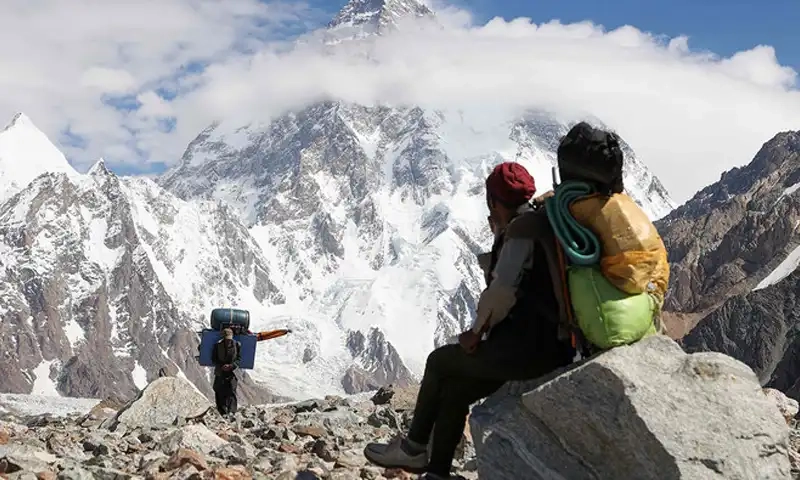- Web Desk
- Feb 24, 2026
G-B cabinet slashes mountaineering permit fees after backlash
-

- Tanveer Abbas
- May 13, 2025

GILGIT: The Gilgit-Baltistan (G-B) cabinet on Tuesday reversed its decision to hike trekking and mountaineering permit fees following strong protests from tour operators.
In September 2024, the G-B Tourism, Sports, Culture, Archaeology, and Museums Department had abolished the previous group fee system—which applied to seven climbers—and introduced individual permits, nearly tripling costs. The move drew sharp criticism from the tourism industry.
During a cabinet meeting chaired by Chief Minister Haji Gulbar Khan, the government rolled back the increase amid mounting pressure from stakeholders who warned of adverse effects on tourism.
Special Assistant to the Chief Minister Eman Shah told HUM News English that the revised fees include a reduction for climbing 8,000-meter peaks from $5,000 to $3,500 per person. He said the trekking fee has been cut from $300 to $200, while permit costs for smaller peaks have also been lowered with immediate effect.
The cabinet also approved amendments to the Gilgit-Baltistan Tobacco Control Act 2020 to help protect youth from drug use.
The amended bill prohibits the sale of tobacco products near educational institutions and bans sales to individuals under 18 years of age.
The act, initially passed in 2020, had proven insufficient to regulate new and emerging tobacco products such as flavored vapes, drug-laced chocolates, toffees, and other addictive substances, which were increasingly targeting younger consumers.
In response, the Excise and Taxation Department, along with the Narcotics Control Department, drafted a set of amendments outlining restrictions and penalties, which have now received formal cabinet approval.
The cabinet hailed Pakistan Army’s firm response to Indian provocations and offered prayers for the elevation of the ranks of martyred personnel, including those from the armed forces.
Addressing the media after the meeting, Interior Minister Shams Lone, Planning Minister Raja Nasir Ali Khan, Excise and Taxation Minister Rehmat Khaliq, and Special Assistant Eman Shah briefed reporters on the various decisions taken.
Unchecked hotel boom pushing Hunza to ecological collapse: GBEPA
These included the approval of the Gilgit-Baltistan Testing Service for fair recruitment to fill vacant posts. The service will oversee recruitment for grades 5 to 15 in a transparent manner.
The ministers stated that past practices of favoritism in hiring would be eliminated through merit-based examinations conducted by the new agency.
The cabinet also approved a decision to provide equal development funds to opposition members in line with those allocated to members of the ruling party.
Four new districts will have their deputy commissioners and superintendents vested with the same administrative powers as officials in existing districts.
In addition, the cabinet endorsed a summary for amendments to the Land Reforms Act, which will be presented in the next cabinet session within a week.
The Gilgit-Baltistan Power Development Act was also approved, paving the way for the establishment of a formal power authority following passage by the legislative assembly.
Furthermore, the cabinet approved the allotment of government land for the construction of a Danish school in Ghanche district and passed reforms in the energy sector aimed at improving electricity distribution and governance.
The ministers reaffirmed that the people of Gilgit-Baltistan have always shown an unmatched spirit of patriotism, citing their historic resistance against Dogra rule. They vowed that the region remains steadfast in its commitment to the sovereignty and security of Pakistan.




